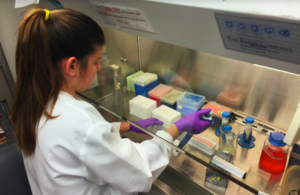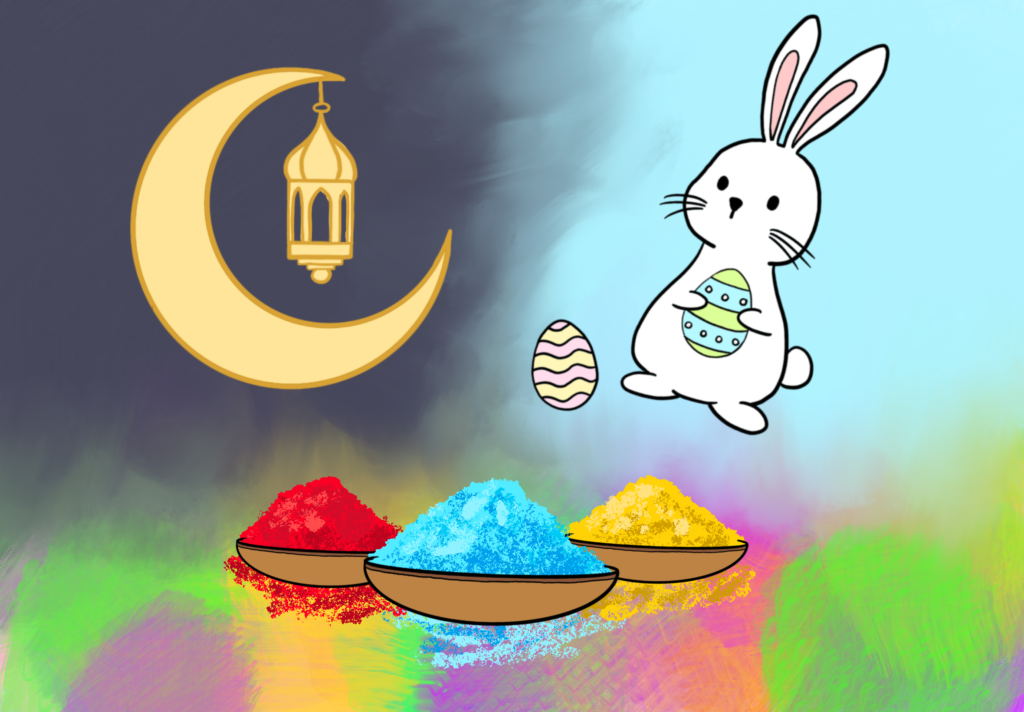Each year in January, the nation’s most prestigious pre-college science competition announces the results of its extensive talent search. Out of 1,964 entrants this year, the competition has selected the top 300 young scientists in America to receive this phenomenal distinction.
Choate is lucky to have had two students picked to be Regeneron Science Talent Search scholars, Se Ri Lee ’19 and Sarah Koljaka ’19. Although both members of Choate’s Science Research Program (SRP), Lee and Koljaka actually learned of the program through different sources. Lee says “The professor with whom I worked this summer suggested that I apply to this competition. He said that high school students who have previously worked in his lab have applied, so I thought I’d give it a try.” On the other hand, Koljaka heard of the competition from a Choate alumna, Trulian Lee ’17.
Despite all the different aspects required in the application, the most important aspect that is evaluated by the judges of the competition is the research itself. Lee conducted her research at Professor Hsiao’s Chemistry lab at Stony Brook University, focusing on solutions to the inevitable problem of water scarcity in our world. Specifically, Lee focused on making membranes for reverse osmosis desalination using a technique called interfacial polymerization (IP). By completing her summer research, Lee hopes to have offered a small piece to a potential solution of a worldwide problem: “I hope that my research and Professor Hsiao’s research at large eventually offer a solution to water scarcity. This may sound like a pretty ambitious thing to say, but I think it’s important that labs across the world collaborate to find an efficient way to increase water supply both in developed and developing nations.”
Koljaka’s research focused on another pressing issue in our world today: “I studied a brain cancer called Meningioma. I was actually doing some independent reading during my time at the lab, and I found out that another research group in Australia found that two types of proteins were involved in the development of another type of brain cancer called schwannoma which was genetically similar to Meningioma and I was interested if that interaction would be relevant to the brain cancer my lab was studying.”
Koljaka created her own research proposal after reading up on the news and was able to get it approved by her mentor while funding it with the Paul Mellon scholarship from Choate. Koljaka said, “The research I completed was definitely only a preliminary study, as I only had 8 weeks, but there was a lot of more that I think I want to do as the results were pretty promising in terms of [fighting] that type of cancer.”
On January 23, the competition will become even more selective as 40 students of the original 300 will be picked as the Regeneron Science Talent Search finalists. These finalists will receive an all-expenses paid-for trip to Washington, where they will be given the opportunity to meet with real scientists, display their research, meet with national leaders, and compete for the top prize of $250,000. When asked about this opportunity both students responded with excitement. Koljaka stated, “The next stage is so incredibly competitive, and I am not expecting anything, but if I had the opportunity to do that, it would be absolutely amazing. You would get to connect with all these people that are really passionate about their research and established people in the field.”
After spending her summer working in a lab and going through the process of becoming a Regeneron STS semi-finalist, Lee provided some words of advice for prospective STEM students: “If you ever get the chance to work in a professional laboratory or conduct your own research project, I’d say just dive right into the experience. I wouldn’t be discouraged if your results don’t seem Nobel prize worthy. Mine definitely weren’t by the end of summer. I realized that research is a long, long process that can last for years, and I think for me, the rewarding part of research was the process more than the results.”


